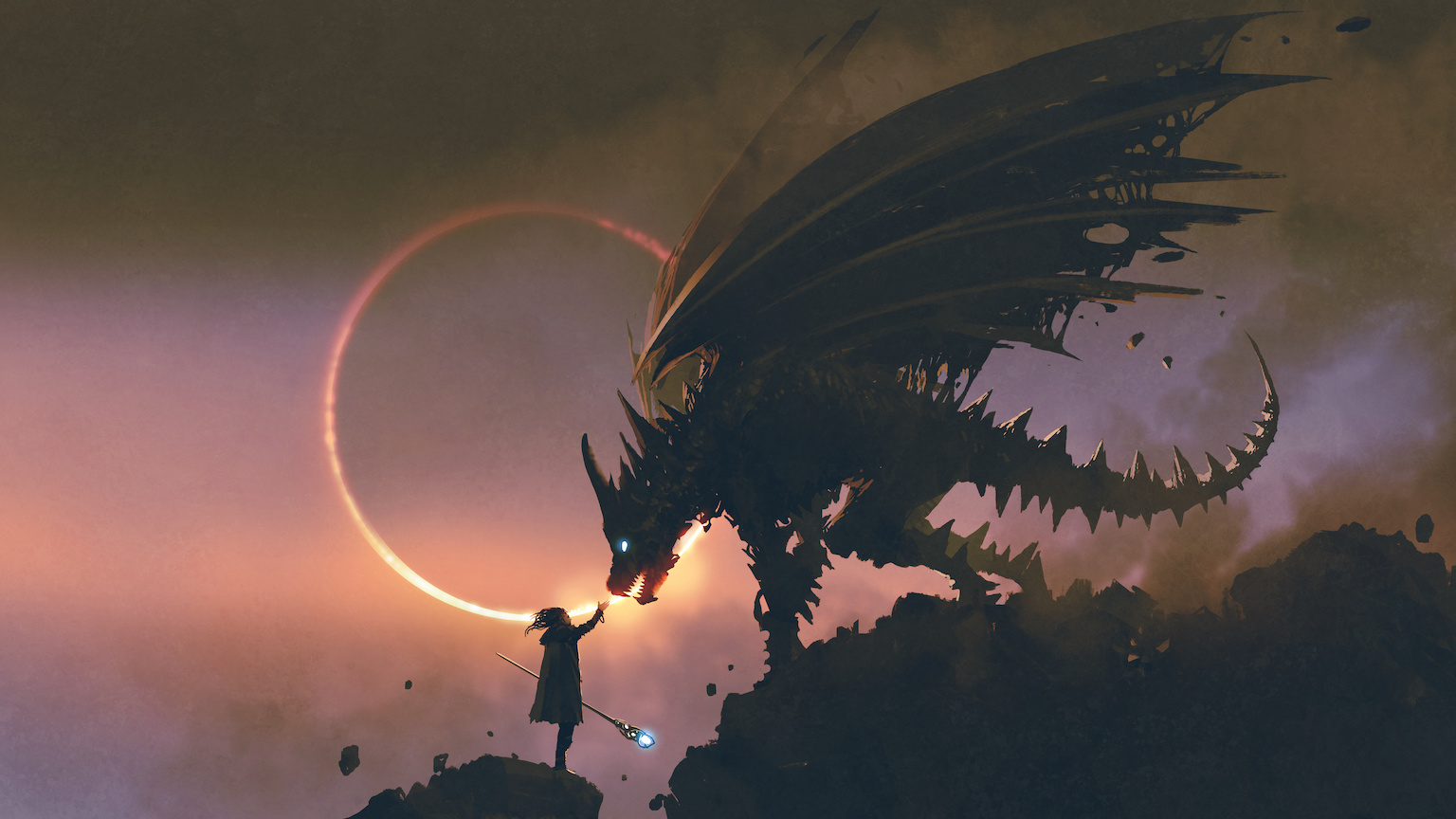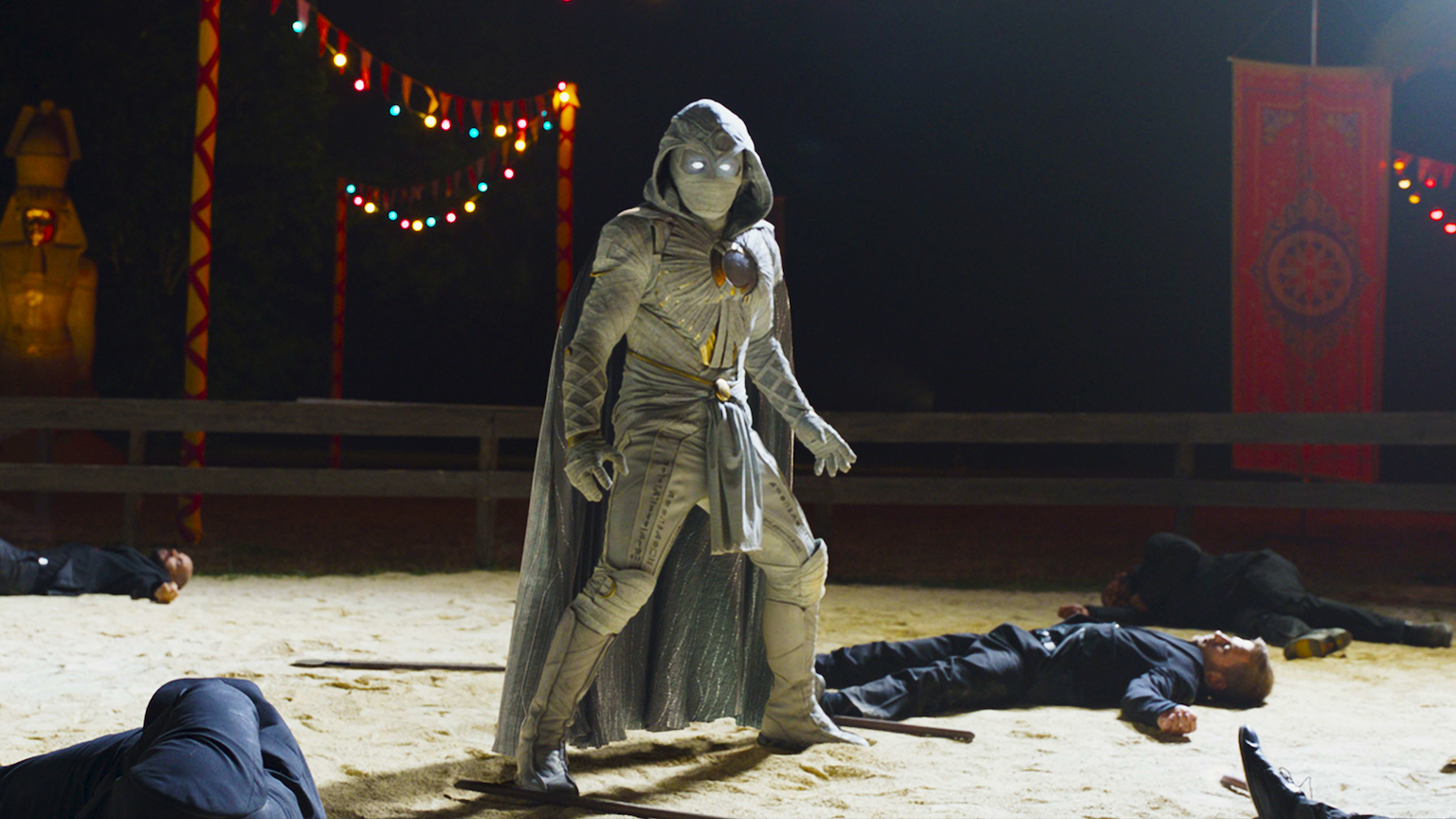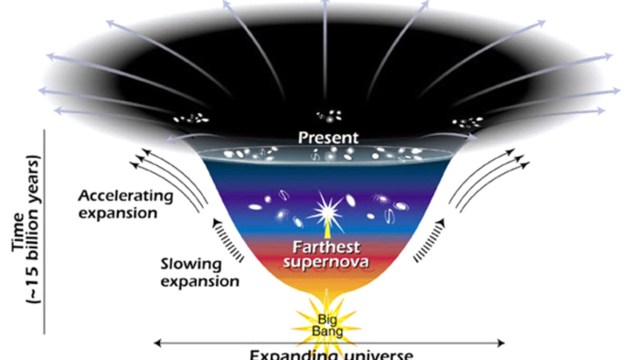Why Tolkien thought “sub-creation” was the secret to great fantasy and science fiction

- People sometimes look down on fantasy and science fiction, as if reading is a status symbol and these genres are only for children.
- For J.R.R. Tolkien, fantasy involves a depth of imagination known as “sub-creation.”
- Fantasy and science fiction also reflect a fundamental aspect of the human condition — the struggle to overcome hardships.
People sometimes look down on fantasy — not the prize-winning, metaphorical magical realism kind, but the kind of fantasy that has swords, sorcery, and dragons. It is generally accepted that children can enjoy made-up worlds, magical beasts, and dark lords. But, when we become adults, it seems we ought to turn to “proper” literature — mature, respectable, and written in ornate prose. It’s as if the books we read are a status symbol, and those who read serious books, about serious things, must be serious people. But this misses the point of what fantasy is about, and the totemic father of the genre, J.R.R. Tolkien, has a lot to say on the topic.
Sub-creation
The snobbery of those who look down on fantasy has a long pedigree — so much so that, in 1947, J.R.R. Tolkien felt the need to defend the genre in his work, “On Fairy-Stories.” For Tolkien, fantasy and fairy stories are not simply stories about fairies. They are stories that take place in a land of fairies. They exist in their own created land, where any number of wondrous things can happen, but they are always treated with the utmost seriousness by the reader. To enter Faërie is not to enter a world of simple make-believe; instead, we perform an act of “sub-creation,” in which we form a world within our wider “reality.”
This imaginary world we create always will go beyond the words given to describe it. The fantasy realm “cannot be caught in a net of words; for it is indescribable.” Words alone will never be able to conjure up a fully realized land of magic. For this, we need the ability to sub-create. When we sub-create a world, we “make a Secondary World which the mind can enter.” This world has its own internal logic, laws, and systems. We see, feel, and live in this world in a way far beyond the words on a page can alone provide. We color in background details and add sights, smells, and wonders that go beyond the narrow bounds of the words in the book. It is why movie adaptations can feel so hollow, at times.
If you have read Lord of the Rings, you can understand what Tolkien’s getting at. Middle Earth is built with such a depth and detail that, while sub-creation means time and effort, you feel as if you are in that world. It’s hard to describe. It’s not simply inventing mental images but sub-creating an entire world and living alongside the characters. It means watching the drama, but from the inside.
The brilliance of Beowulf
Sub-creation is a fascinating philosophical examination of what the mind does when we read of other worlds, but it brings us no closer to the value found in the process. For this, we must turn to Tolkien’s essay on Beowulf.
Beowulf is not about a great siege, nor some story of courtly intrigue. It is a poem about just a man. That is, for Tolkien, the entire point. The story of Beowulf is of one man’s struggle against the great tide of misfortune. Beowulf is the smallest, briefest of flickering candles in a great expanse of darkness. And, that is what it means to be a hero.
Beowulf is a great poem because it speaks of the dualism in all human life — of youth and age, of success and failure, of glory and doom. Every person will enjoy the warm, joy-filled days of summer as much as the cold, despairing nights of winter. In one day, year, or lifetime, everything swings between light and dark. We will eat drink and be merry, but tomorrow we shall die.
The brilliance in Beowulf, and in fantasy generally, is in the monsters or villains they provide — in the orcs, dragons, monsters, or cruel emperors. Because these foes are imaginary, they serve as empty vessels into which we each pour our own nemeses. As Tolkien writes, Beowulf “glimpses the cosmic and moves with the thought of all men concerning the fate of human life and efforts; it stands amid but above… the dates and limits of historical periods, however important.”
There is something about great fantasy that emboldens the spirit and gives fire to the fight. It is found not only in the words and plot but in its atemporality. It tells us that there is something universal to the human condition that ought to be celebrated. It is something as true for Anglo-Saxons in their snowy mead halls as it is for office drones changing their login passwords.
It says that no matter what monsters we face, we shall overcome and live on. We shall not be defeated.
Why Tolkien loved fantasy
Books of all sorts are escapist. Fictional narratives and made-up characters define a novel. Yet, no genres are quite so escapist as science fiction or fantasy. In that, lies their value. When we imagine a school of wizards, dragon-riders, or humble villagers becoming heroes, we leave the world behind. We enter a world which bears just enough connection to this world to make sense, while being alien enough to be exciting, vibrant, and hugely readable.
As Tolkien put it, “I have claimed that Escape is one of the main functions of fairy-stories, and since I do not disapprove of them, it is plain that I do not accept the tone of scorn or pity with which ‘Escape’ is now so often used. Why should a man be scorned if, finding himself in prison, he tries to get out and go home? Or if he cannot do so, he thinks and talks about other topics than jailers and prison-walls?”
The ability we have to read books, imagine worlds, and play make-believe is one of the greatest balms we have. Fantasy takes us on an incredible journey, but it gives us all the heroes and villains we need to make sense of the world.





